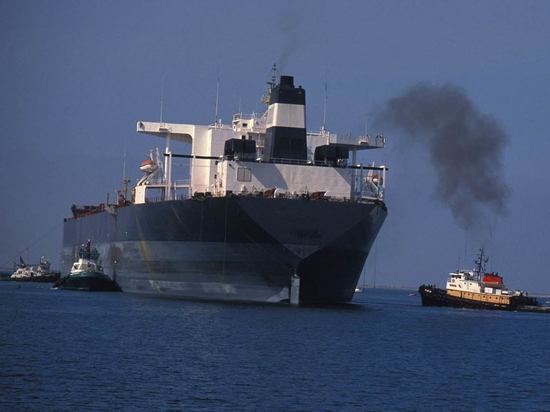Russian “shadow” tanker fleet hits sanctions icebergs
[ad_1]

Became known the details of the next Western package of economic restrictions
The European Union has decided to put an end to the practice of shady transshipment of Russian oil from ship to ship on the high seas, used by our exporters to circumvent Western restrictions. The 11th package of anti-Russian sanctions includes the following item: tankers suspected of “fraud” will be prohibited from entering European ports, Bloomberg writes, citing an official Brussels document. This draft exists so far only in the form of a draft, that is, its contours are formulated only in the most general terms, so it is not yet clear how feasible it is from a legal and technical point of view.
When developing the 11th package of anti-Russian sanctions, the European Commission relies on some data indicating a “sharp increase in fraudulent activities and associated environmental risks” from courts trying to circumvent two types of restrictions: the “ceiling” of prices for “black gold” from our country , set at $60 per barrel, and an embargo on offshore oil supplies from Russia, introduced from December 5, 2022. The current measure will aim to remove all sorts of loopholes by which such obstacles can be circumvented.
The most famous regions for the transfer of oil from tanker to tanker are the Mediterranean Sea near the Strait of Gibraltar and the bay of the Greek port of Kalamata. According to the navigation portal VesselFinder, at least 16 oil tankers were at Kalamata on May 11, which came from the Baltic and Black Sea ports, as well as from the United Arab Emirates and India. At the same time, three vessels carried out transshipment from side to side. In turn, the waters of the Strait of Gibraltar serve as a channel for the supply of Russian oil to China. From Aframax class vessels with a capacity of 600,000 barrels, raw materials are delivered to supertankers (2 million barrels).
Vessels of little-known owners involved in these schemes do not indicate the final point of arrival and turn off the automatic identification system along the way, which makes it impossible to track their location and movement. In addition, it becomes possible to keep the insurance of Western companies.
“Of course, the Europeans do not like this at all, and they want to at least complicate the practice of transshipment of Russian raw materials, if not stop it once and for all,” says Igor Yushkov, an expert at the Financial University under the Government of the Russian Federation. How is the process going now? Small oil ships, owned mostly by state-owned shipping companies, sail from Novorossiysk, Ust-Luga, Primorsk and other ports in the Baltic and Black Seas that are legally classified by international insurance companies as war zones. Then this “shadow” fleet begins to operate in a shuttle mode: after arriving, for example, in the water area of Greece, the raw materials are reloaded onto tankers of a larger deadweight (tonnage), and they, in turn, go to distant markets. First of all, we are talking about India, which has become the largest buyer of our oil transported by sea.”
Mostly, transshipment takes place off the coast of three EU member states – Greece, Spain and the Netherlands, while tankers do not call at the ports there. According to Yushkov, official Brussels is trying in every possible way to discourage local companies from participating in such schemes. Its strategic goal is to deprive the Russian political leadership of income from the sale of energy resources, and for this, various tactics are used to increase the cost of logistics for exporters to the Russian Federation. In particular, the Europeans are trying to ensure that Moscow stops using the “twilight fleet” and rents ships on the international market. According to the logic of European officials, we will implement the plan at oil prices below $60 per barrel. However, the expert concludes, for this it is necessary to solve a number of legal and law enforcement issues, which the European Commission does not mention at all.
“The proposed restrictions must be supported by all EU countries, and the original draft will be revised more than once,” writes the specialized British publication Lloyd’s List. “Therefore, it remains unclear whether specific navigational obstacles will remain in the final version at all.”
From January to March 2023, after the entry into force of the December sanctions, sea shipments from our country increased by almost 20% compared to the first quarter of last year, says Andrey Loboda, an economist and director of communications at BitRiver. Hong Kong and Dubai have become centers of trade in foreign markets. Cash flows now go through them, bypassing Western Europe. Under the nose of the European Union, in the territorial waters of Africa near Southern Europe, the volume of transshipment of Russian oil from tanker to tanker since January 1 this year has exceeded 40 million tons. In Loboda’s opinion, as long as the energy crisis is not overcome in the EU, the market of anonymous buyers and sellers will flourish. It is unlikely that anyone will establish the origin of oil, because Western vertically integrated commodity companies do not want to lose profits.
[ad_2]
Source link






